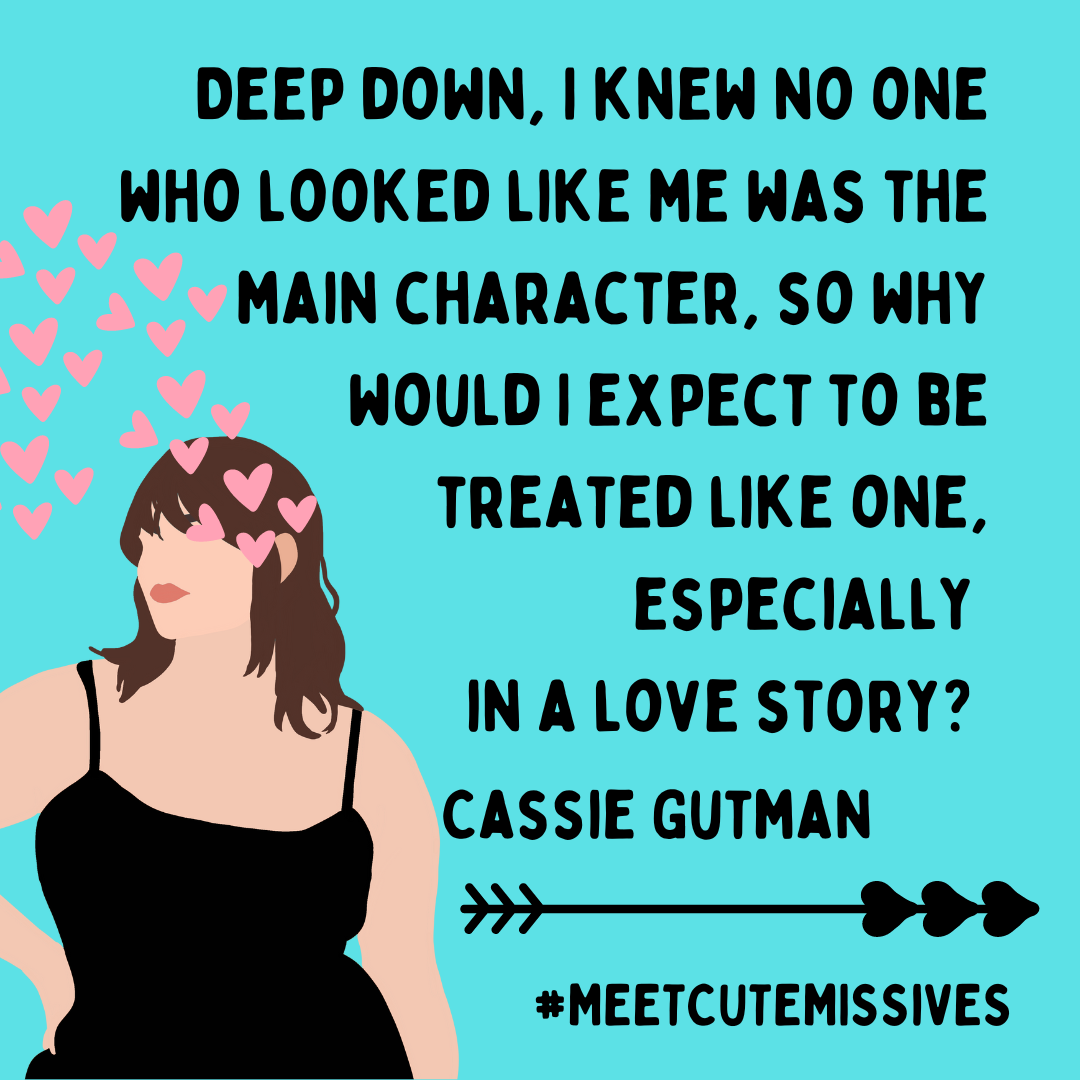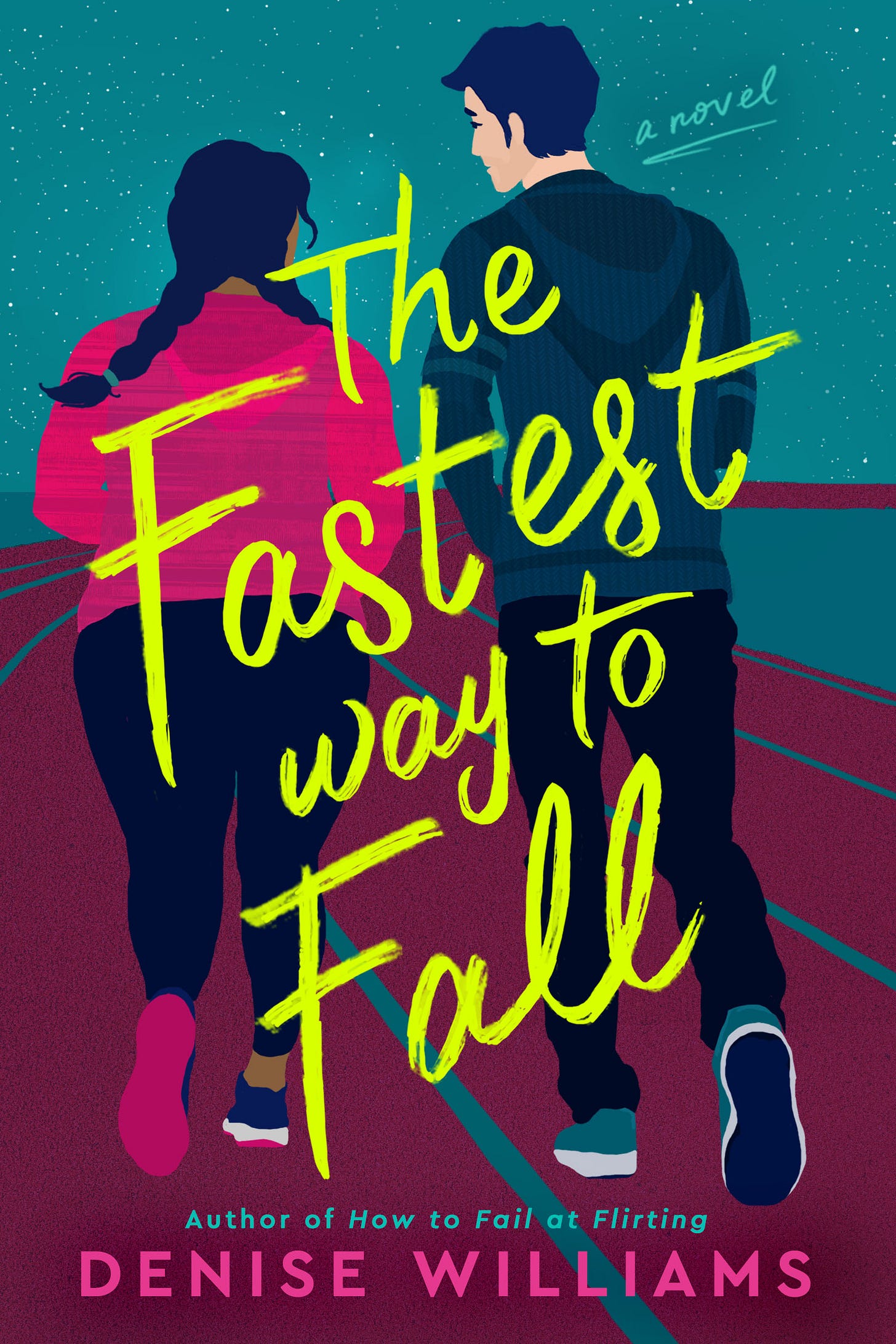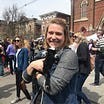A New Generation of Romance Writers are Putting Fat Characters on the Page
Here’s Why it Matters
A note on the word “fat”: I will be using “fat” to discuss people with larger bodies. While many may associate this word negatively and would rather use “plus-size” or “large-bodied”, the word “fat” is not an inherently negative word. It is the opposite of thin, which is not an inherently good word. These words are neutral ways to describe bodies, and by removing their power to be good or bad, we can help further advances in body positivity and body neutrality.
I grew up on the rom-coms of the ‘90s: You’ve Got Mail, 10 Things I Hate about You, Never Been Kissed. The list goes on for miles. The one thing they all had in common, other than my early adolescent obsession? Every main character was thin.
While I didn’t necessarily think anything of this when I was younger, it certainly shaped the way I thought about love stories in relation to my own body. I saw the funny fat friend as the sidekick in movies mirror the way I slid into that same role in my real life as I aged into high school. I saw my friends get asked to prom and on movie dates while I remained the fun jokester who didn’t mind because I never expected to be on the other side—I thought my role was fun and cool, and I was okay with it. Deep down, I knew no one who looked like me was the main character, so why would I expect to be treated like one, especially in a love story?
“I’d never liked seeing before-and-after photos, because looking more like the before than the after photo always made me feel like I had work to do, even when I was perfectly happy with the photo on its own.”
—The Fastest Way to Fall by Denise Williams
In my early twenties, tired of seeing everyone pass me by, I was determined to change my fate. I embarked on a serious weight loss journey, losing more than 70 pounds over the course of a year. I wasn’t starving myself, but I was obsessive about numbers, weighing daily and tracking everything I ate. It was only after I lost the weight that I started to notice a true difference in my life. I was invited to parties. More people swiped right on the apps. I felt confident enough to finally try dating. But why didn’t these things happen before then?
Why didn’t I believe I deserved love exactly the way I was, in the “before” photo? Maybe if I had had role models in my beloved ‘90s rom-coms that looked like me, I would have. Instead, I had the fat funny friend, so I took up that position and accepted that was who I was—nothing more.
“I’m still fat and still happy with me. For a lot of years, I believed it was wrong to be happy with this body. I settled for so much less than I deserved. No more, though. I love this body, and I won’t ever be with anyone who doesn’t love it as well.”
—The Fastest Way to Fall by Denise Williams
That’s why now, when I look at the books that have come out in the past year, I feel more hopeful for me now and for me fifteen years ago, for the girls like me that never saw themselves on covers and in books. Every time I go to a bookstore or the library, I see one more book that makes me smile because the people on the front look like me. While there’s still not nearly as many as there are books about thin people, we are slowly starting to see fat representation both in books and on the covers of books, and I hope that other genres begin to follow this pattern. Young adult books are also making great strides in this area, but not many other genres feature these stories.
And not only are there stories about fat people, there are stories about fat people that don’t involve them changing, losing a ton of weight, or going through a major transformation to find love, be a hero, be the main character in their own stories. These are people who happen to be fat — but their shape isn’t their defining characteristic, just one part of who they are.
In Olivia Dade’s Ship Wrecked , Maria and Peter, both fat actors, land leading roles in a well-known fantasy series and get to star in action sequences and romantic scenes—all in the bodies they already have. In The Fastest Way to Fall by Denise Williams, Britta is a journalist who signs up to review a fitness app, but the app and her coach are explicit in saying they don’t focus on weight loss and want Britta to achieve her goals of being stronger and feeling good naked.
“He could, for once, be a love interest and a goddamn hero.”
—Ship Wrecked by Olivia Dade
Of course, every story has its challenges, and every hero has their hurdles, so these characters do struggle in ways. But it’s not a struggle about weight loss. In The Make-Up Test by Jenny Howe, Allison deals with comments from her mother about her food choices, even though Allison is healthy and happy the way she is (and a grown adult). Britta from The Fastest Way to Fall experiences a heart-crushing moment when her coworker suddenly is attracted to her, telling her she’s pretty now that she’s lost a few pounds from working out, causing her self-esteem to plummet.
But unlike the narrative that the media typically puts out there about fat people—that we’re all unhappy until we’re skinny—these challenges do not result in characters trying to make numbers go down on a scale. The journey to self-love is never-ending, and everyone has setbacks. Seeing this happen for these characters is hard, but it also reaffirms that it’s okay if we don’t love our bodies every single moment. We will again.
So what’s the big deal? you might ask. Why does this matter? Because seeing ourselves reflected in the stories we’re reading—whether they’re stories about fat people, people of color, disabled people, LGBTQ+ people—help us see that we are allowed to take up space exactly as we are. That our stories can be these stories, or they can be totally different. Representation matters, and everyone deserves to see themselves represented in media. As Britta said it best:
“One of the first things I told my coach was that I didn’t want to do yoga. I know so many of you love it, but I never saw the appeal. That is to say, I never did until I found the YouTube channel of a woman who looks like me leading yoga instruction. I saw this beautiful, fat, Black woman and thought, ‘Maybe me, too.’ Guess what, readers? I love it! Representation is so important in all aspects, but three cheers for fat representation in fitness. We’re out here doing it, friends. Having someone I thought I could trust show me the ropes meant everything to me giving yoga a try.”
—The Fastest Way to Fall by Denise Williams
I’m excited for all the books about fat people out now and look forward to many more coming in the future.
Cassie Gutman is happiest when surrounded by books and dogs. Originally from a small, funny-named town near Louisville, Kentucky, she now edits words for a living near Chicago and would like to be paid in ice cream. She writes the newsletter
, and you can find her on Instagram @readingundertheradar.







Beautifully written, Cassie! As someone who has struggled with an eating disorder and continues to struggle with body image, I think back to my high school years and wish I could have just loved my body for what it was, and accepted that I deserved love, too, no matter what my size or shape was.
Bravo! Such a great essay and a conversation that we need more of - thank you! 🌼